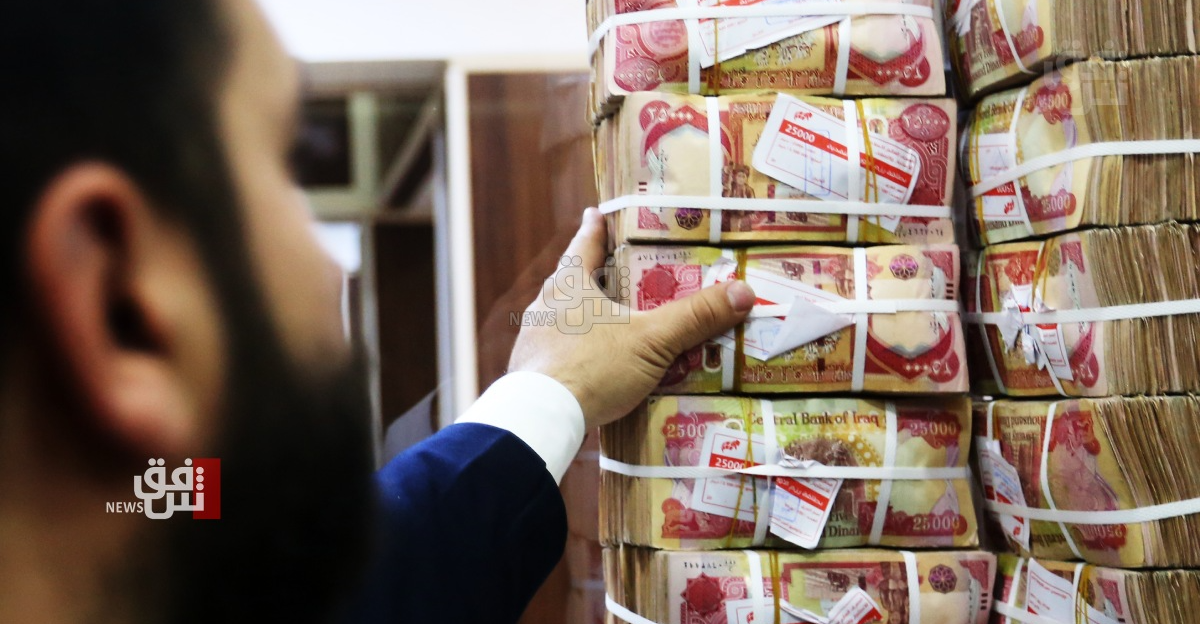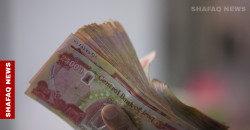From burden to strategy: Iraq cuts debt, targets growth

Shafaq News – Baghdad
Iraq is advancing a fiscal plan to reduce over $114B in public debt, aiming to enhance credit ratings, expand policy flexibility, and reallocate resources to long-term infrastructure development.
Domestic debt edged down in April to 85.5T IQD ($60.2B), from 85.53T ($60.23B) in March, according to Central Bank (CBI) data, after repayments to financial institutions, lowering their outstanding share to 19.11T IQD ($13.45B).
Additional internal liabilities include 756B IQD ($532M) owed by the Ministry of Finance, 51T IQD ($35.91B) in treasury transfers held by the central and commercial banks, 2.03T IQD ($1.43B) in ministry-backed treasury notes, and 12.57T IQD ($8.85B) in deferred payments, largely owed to farmers.
Foreign obligations have also declined. CBI reported on June 14 that Iraq’s external debt dropped to $54.6B in 2024, down 2.94% from $56.2B in 2023. About $9B is due by 2028, with an additional $9B linked to long-term loans from international reconstruction funds.
Debt Within Global Thresholds
Analysts highlight that Iraq’s debt ratios remain within safe international bounds. External debt constitutes less than 8% of GDP, placing Iraq in a low-risk category that supports credit stability and foreign investor interest.
Speaking to Shafaq News, Prime Minister's financial adviser Mudhhir Mohammed Saleh described the current policy direction as “fiscal consolidation,” where controlled debt growth aligns with reduced budget deficits, a central goal in the government's economic roadmap.
Decreasing reliance on borrowing, he added, "improves Iraq’s credit standing, lessens exposure to risk, and attracts foreign investment."
Additionally, easing internal debt alleviates pressure on local liquidity. “Lower sovereign borrowing allows commercial banks to extend more credit to the private sector, fueling domestic growth,” he noted.
Repayment Plans
Also speaking with Shafaq News, financial analyst Safwan Qusay proposed using state-owned assets to settle internal debt. “The Ministry of Finance can convert real estate into tradable shares and allocate them to creditors—removing interest burdens and preserving fiscal space.”
He added that Iraq’s external liabilities are mostly concessional, offering favorable repayment terms. "Demonstrating repayment ability enhances Iraq’s financial credibility and appeal to global investors."
Still, he cautioned against aggressive borrowing, even if global benchmarks allow debt up to 60% of GDP. “Iraq must use its resources wisely to avoid transferring today’s debt onto future generations.”
The World Stage
Placing Iraq’s debt within a global context, economist Karim al-Hilu told Shafaq News that sovereign borrowing is common among advanced economies. “The United States carries over $36T in internal debt, while Germany owes €2T."
"Domestic liabilities, denominated in local currency, are easier to manage. In contrast, external debts come with interest obligations and may expose a country to geopolitical pressures," he explained.
Al-Hilu emphasized that reducing debt levels will unlock funds for essential development. “Iraq needs over 1,000 strategic projects in transport, energy, and food security. Debt reduction can rechannel spending into these areas.”
However, he warned that fiscal gains alone won’t resolve deeper governance problems. “Administrative inefficiencies, political quotas, and corruption continue to block execution of approved plans,” he observed.
Even well-structured federal policies often stall at the local level. “Some tenders and investment projects require bribes to proceed, and provincial actors frequently obstruct implementation for partisan gain,” al-Hilu concluded.
Looking Ahead
Beyond immediate fiscal metrics, Iraq’s long-term financial outlook hinges on institutional credibility and transparent execution. Analysts emphasize that without reliable reporting standards and predictable budgeting cycles, credit agencies and investors may hesitate to reclassify Iraq into more favorable risk categories despite falling debt levels.
Another critical factor is the development of local capital markets. Strengthening domestic bond markets, improving regulatory oversight, and expanding non-oil revenue streams could give Iraq additional tools to manage debt sustainably without overreliance on external aid or emergency lending.
Iraq’s ability to balance debt reduction with inclusive growth will shape its role in regional economic dynamics. As global capital flows shift amid tightening monetary policies, countries like Iraq must demonstrate not only solvency, but also vision, transforming fiscal gains into enduring national development.
Written and edited by Shafaq News staff.





